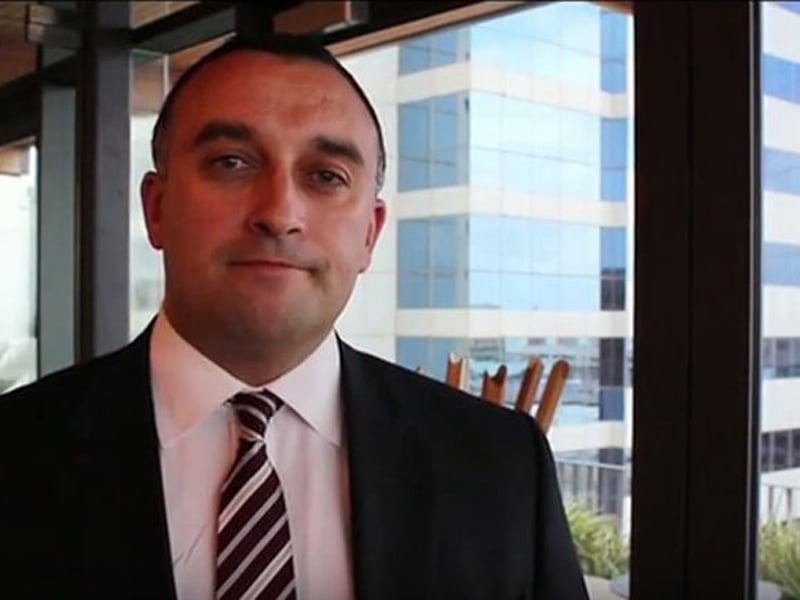A comprehensive plan for Australia’s innovation economy is urgently needed, with an opportunity to attract offshore capital and talent at unprecedented levels following the COVID-19 pandemic, according to Australian Investment Council chief executive Yasser El-Ansary.
If Australia’s current positive trajectory with COVID-19 cases and the progressive easing of social restrictions continue, there is an opportunity to grow the local tech sector by attracting overseas funds to invest in Australia and bringing new talent to the country, Mr El-Ansary said.
“If that light at the end of the tunnel does materialise and we do emerge in the next couple of months in a way that the government is foreshadowing, then there is a tremendously significant opportunity for Australia to capitalise on the fact that we endured the pandemic well in relative terms,” Mr El-Ansary told InnovationAus.

“It actually creates for Australia a really significant platform to build opportunity for our future and to position Australia as being amongst the first movers in the world to re-emerge out of the pandemic and to restart our economy.”
The main focus of this rebuild should be on growing the local tech sector, Mr El-Ansary said.
“We should be using that marketing position to its maximum advantage and selling Australia globally as a safe and stable market into which capital can be invested,” he said.
“We should use that as an opportunity to bring investment funds into our market which we desperately need to continue to propel growth in the economy, and to attract talent back into the country from offshore.
“These people may see the way in which Australia has managed through the pandemic as a real positive for our capacity to navigate major structural challenges. Australia has a really significant marketing opportunity to position itself for the future in the globalised marketplace with a more competitive footing than we had a few months ago.”
The Australian Investment Council has been working with members to create a private capital industry statement, to be presented to government in the coming weeks. This outlines a way forward for the sector and what government policies would be needed to support this. This would likely include new programs, co-investment funds and tax incentives.
“What is ahead of us is an opportunity in collaboration with government to develop a new, agile plan for how Australia restarts its innovation economy and strives for a more competitive footing globally than we occupied just a few months,” Mr El-Ansary said.
“We need to think about how industry supports areas of the innovation ecosystem that will struggle for some time into the future as a result of the pandemic.”
Access to talent has long been one of the most significant issues facing the tech sector, and a concerted effort is needed post-COVID to bring more tech workers to Australia, he said.
“This is one of the best opportunities of the last decade to propel Australia into a first-mover pack and demonstrate that Australia is an attractive destination not just for investment capital but for highly talented, skilled professionals to come into the market and help form part of the economic rebound we are moving through now,” he said.
“There’s an opportunity if the government is willing to embrace it to create a new, bold plan, building on the foundations we have here.
“The task for government and for us is to consolidate the best features of all of those various inquiries and reviews they’ve undertaken and develop an action plan. We don’t want more reviews. We want actions laid out in a comprehensive plan for the nation.”
“And at the heart of it should be the importance of technology in driving our future economy, which is more important than ever before in history – that’s plain for everyone to see now.”
Australia’s venture capital industry has been hit hard by the coronavirus crisis, with the series of issues facing super funds particularly leading to reduced funding for tech firms.
VC firms have also turned their attention towards ensuring their portfolio companies survive the crisis rather than looking to fund new companies, Mr El-Ansary said.
“Right across the private equity ecosystem from day one of the pandemic everyone’s singular focus at a fund level has been to work as closely as possible with portfolio companies to help them navigate through the crisis and ensure they can remain viable,” he said.
“For many reasons, that’s entirely the appropriate thing to be doing. Everyone wants to see those businesses continue through the downturn and come out the other end of it in reasonable shape.”
But Mr El-Ansary is positive that the sector will bounce back quickly.
“I’m of the view that over the coming months a degree of balance will be restored in that equation, and I think we will see some significant pain points today alleviated to a large extent,” he said.
While the JobKeeper wage subsidy program has greatly assisted some local tech companies, many have missed out and more needs to be done to include them in the scheme, he said.
“The speed with which it had to be designed and implemented has in some cases led to outcomes where companies that by rights should be entitled to access the program simply can’t because they can’t satisfy an element of the criteria designed with a certain type of business in mind,” Mr El-Ansary said.
“We’ve done lots of work across our industry in dialogue with the government and Treasury to help shine a spotlight on where those exceptional outcomes arise and whether solutions can be put in place to alleviate them.”
Do you know more? Contact James Riley via Email.

